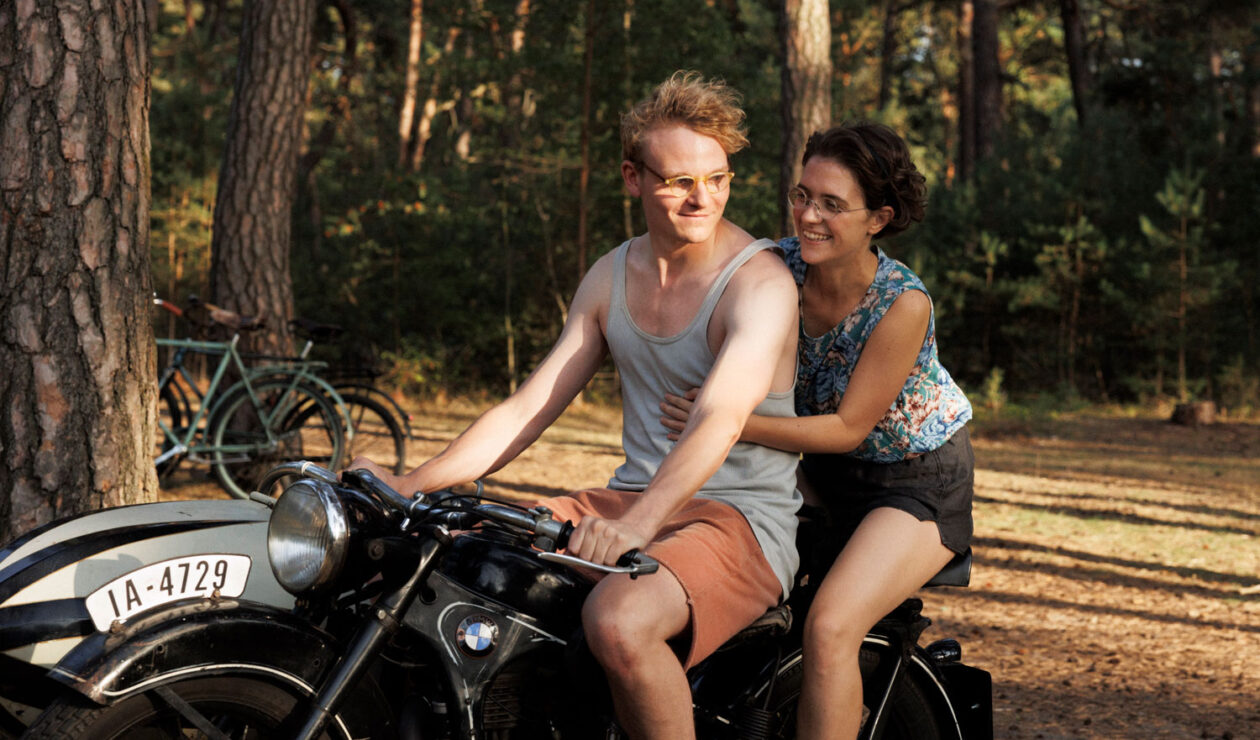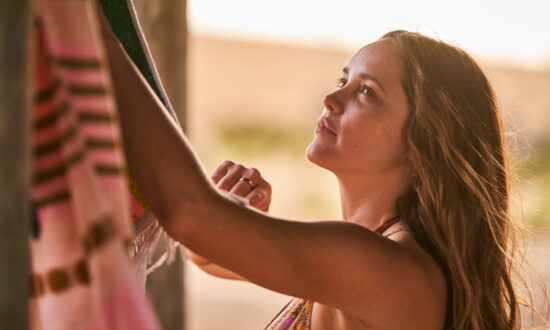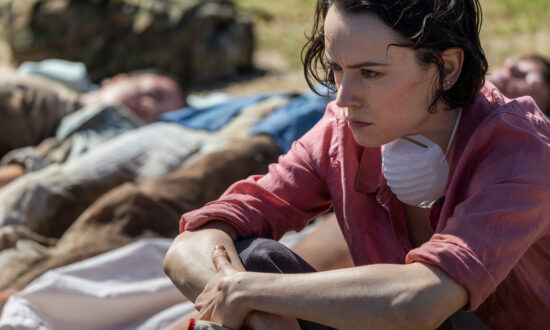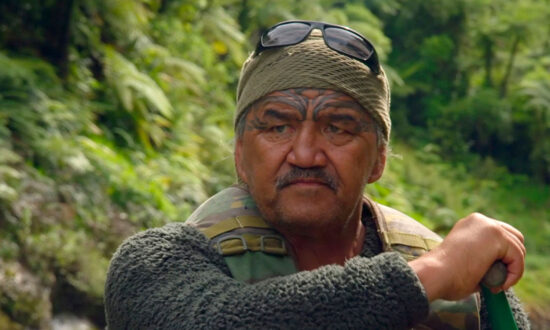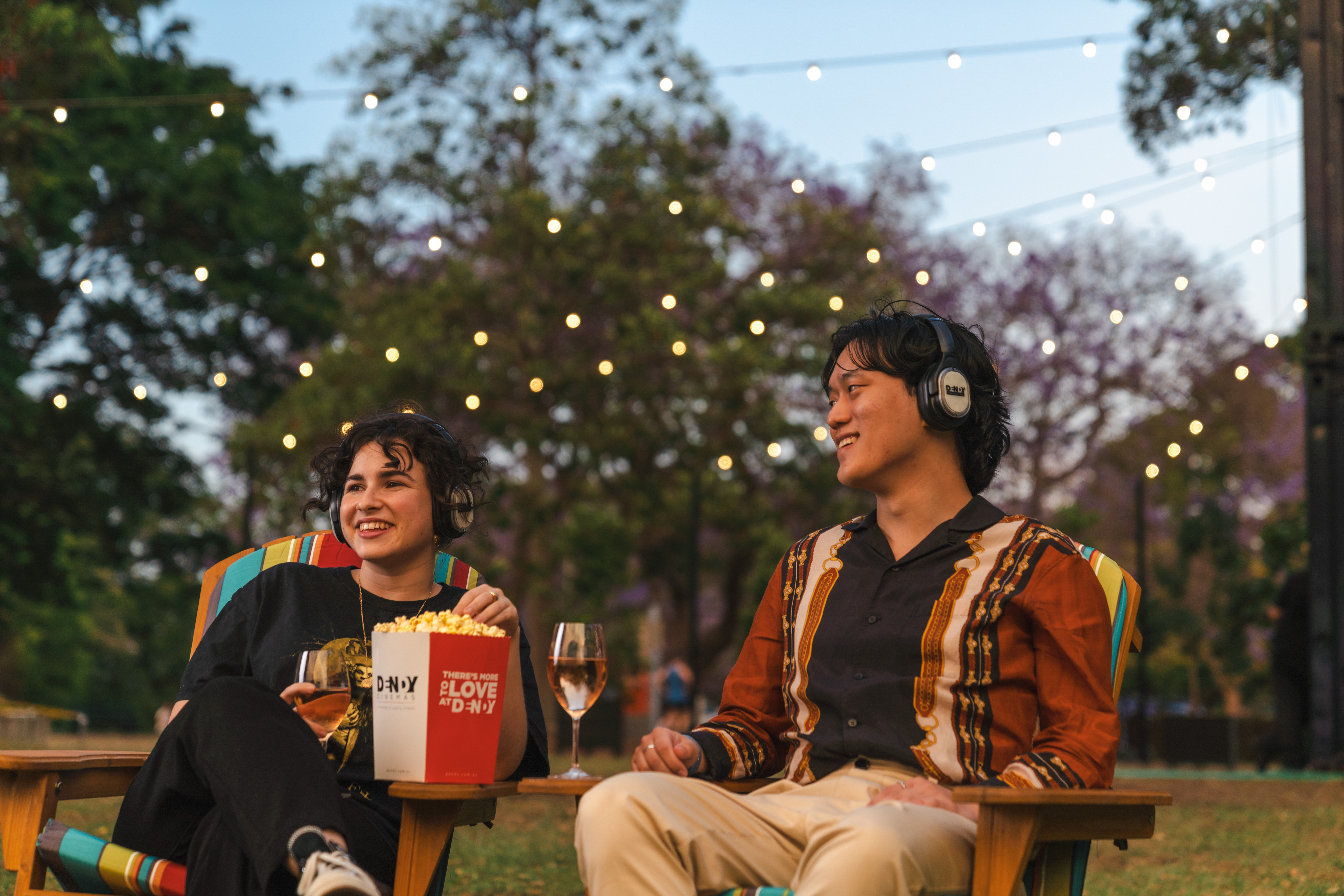Andreas Dresen, the director of From Hilde, With Love, grew up in East Germany idolising Communist sympathisers like the young Hilde Coppi, who co-operated with the Soviet Union to resist the rise of Hitler.
“The communist government in East Germany glorified them, and made them bigger than life,” says Dresen, who will be in Adelaide to see his film open the HSBC German Film Festival on May 15.
“For me, these were super-heroes. They were so courageous, so brave, and it wasn’t ever possible to compare yourself to them.”
Dresen’s drama follows the real Hilde and Hans Coppi, a young couple who are only peripherally involved with the resistance but are nevertheless caught. Much of the film follows Hilde’s harrowing story as she gives birth to a son in prison while awaiting trial for treason.
Her story is all the more moving because Dresen presents a nuanced depiction of right and wrong. Hilde was never tortured and gives up her friends’ names almost straight away, and in prison the guards show humanity by allowing her to help other women with their children.
Dresen says he was initially reluctant to take on the project because films about the past tend to be clichéd, but this one drew him in by defying the stereotypes of the brave Nazi resistance fighters versus the brutal military machine.
“What I found interesting was to bring it back to a human level, on both sides of society,” he said. “The resistance fighters were not 24/7 resistance fighting; they were young and falling in love and wanted to have families. And on the other end were the people who were, in a way, part of the system.”
The central performance from Liv Lisa Fries (Babylon Berlin, Freud’s Last Session) as a shy young Hilde forced to draw on inner strength makes the film memorable, and Dresen said it took its toll on the young German star.
“She is the kind of actress who feels what she does – it’s not really acting, she jumps into the situation, and when we’re shooting, she was really into that with her whole body and her whole soul. Every tear that she cries in the movie is real.”
Another film staring down an ugly past is Lubo, featuring Germany’s actor of the moment Franz Rogowski (Passages, Undine) as a Romany street performer in Switzerland who, in the opening sequence, dances with his audience dressed as a bear.
The film is long and winding but follows Lubo’s attempts to find his children after they were removed in a racial cleansing operation called Kinder der Landstrasse (Children of the Road) in Switzerland in the late 1930s. Lubo’s grifting journey through Swiss society is a troubling reminder of what life could be like for minorities in neutral Switzerland during the war.

Nosferatu the Vampyre is screening as part of a Werner Herzog retrospective.
The 2024 festival celebrates the 70th year of German cinema abroad with screenings of some of the best films from the past, including the semi-comic Toni Erdmann (2016), which launched actress Sandra Hüller (Anatomy of a Fall) to prominence; director Rainer Werner Fassbinder’s The Marriage of Maria Braun (1978), set in post-war Germany, and a selection of films from Werner Herzog. The latter include the mesmerising Nosferatu the Vampyre (1976) with Klaus Kinski in the role that defined his career.
Kinski’s daughter, Nastassja, equally unforgettable in Wim Wenders’ Paris, Texas (1984), has made only a handful of independent films in recent years but also returns in Dark Satellites, a contemporary series of poetic vignettes about the impossibility of love. Based on a short-story collection, it features three stories of longing with an ensemble of characters engaging in unusual ways.
The festival centrepiece, Foreign Language, fresh from the Berlin International Film Festival and starring Nina Hoss (Tár), focuses on the festival’s theme of human connection in a story about two teenagers in Leipzig and Strasbourg who forge a friendship through letters and language. Palace Cinemas screen curator Zak Hepburn says the film speaks to the times about the importance of relationships.
“The strength of the film for us was that it is a really moving coming-of-age film with a big heart and in this post-pandemic world that we’re living in, it is all about connection,” Hepburn says. “The fact that it was part of the Berlin festival and has come direct to our festival from there was really important.”
In an unexpected piece of casting in a German festival, American actor and director Lena Dunham (Girls) starts in Treasure as a music journalist on a road trip with her father (Stephen Fry) to his Polish homeland. Hepburn says the film is a surprisingly tender road movie and is based on a book, Too Many Men, by Lily Brett.
“The thing that works about the film is the relationship between Lena Dunham’s character and Stephen Fry’s, because there’s such a dry, witty tennis match going on as you hear this bickering father and daughter. It’s a very simple film but it’s got so much heart and it’s all based on those two performances.”
The Herzog commemoration – which includes Aguirre, The Wrath of God (1972) and Fitzcarraldo (1982), about an attempt to haul a real steamship over a Peruvian mountain, both starring Klaus Kinski – includes a contemporary documentary, Werner Herzog: Radical Dreamer, with interviews with admirers including Nicole Kidman and Robert Pattinson.
The increasingly popular Kino for Kids this year features Skater Girls – Get Up, about twins who connect through skateboarding, and a remake of the classic boy and dog weepie Lassie.

Get InReview in your inbox – free each Saturday. Local arts and culture – covered.
Thanks for signing up to the InReview newsletter.
“The funny thing is, Lassie was originally a German book and film before it was reinterpreted into the Hollywood zeitgeist,” Hepburn says.
“So, Lassie goes back to Lassie’s roots and it’s a classic story of animal bonding with a young boy, and there are some really great moments where they just share looks and share experiences. And it’s for all ages, so it’s one the whole family can enjoy.”
The HSBC German Film Festival runs in Adelaide from May 15 to June 5 at Palace Nova Eastend and Prospect cinemas.
Support local arts journalism
Your support will help us continue the important work of InReview in publishing free professional journalism that celebrates, interrogates and amplifies arts and culture in South Australia.
Donate Here
